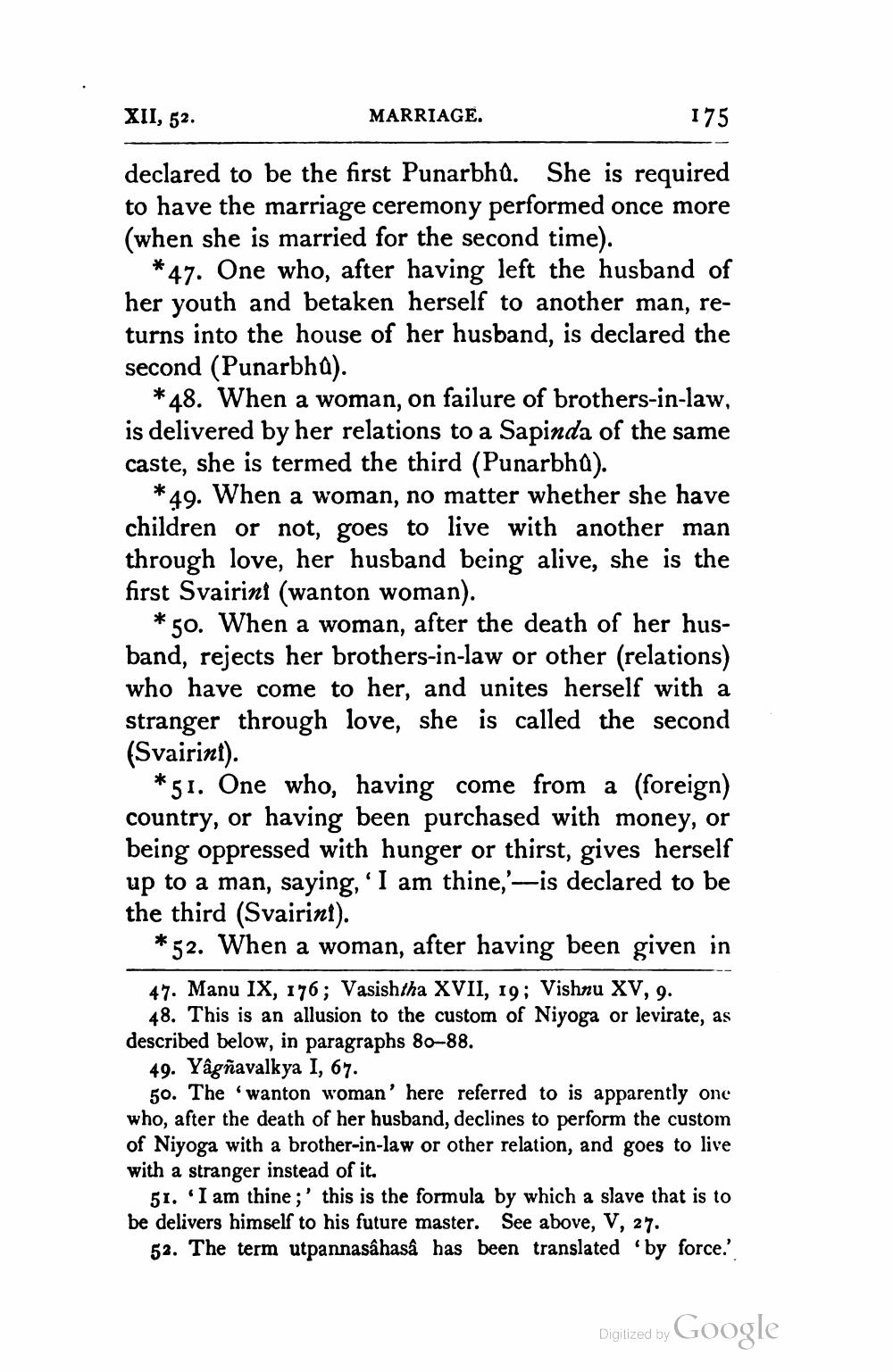________________
XII, 52.
MARRIAGE.
175
declared to be the first Punarbha. She is required to have the marriage ceremony performed once more (when she is married for the second time).
*47. One who, after having left the husband of her youth and betaken herself to another man, returns into the house of her husband, is declared the second (Punarbha).
*48. When a woman, on failure of brothers-in-law, is delivered by her relations to a Sapinda of the same caste, she is termed the third (Punarbha).
*49. When a woman, no matter whether she have children or not, goes to live with another man through love, her husband being alive, she is the first Svairint (wanton woman).
*50. When a woman, after the death of her husband, rejects her brothers-in-law or other (relations) who have come to her, and unites herself with a stranger through love, she is called the second (Svairint).
*51. One who, having come from a (foreign) country, or having been purchased with money, or being oppressed with hunger or thirst, gives herself up to a man, saying, 'I am thine,'—is declared to be the third (Svairint).
*52. When a woman, after having been given in 47. Manu IX, 176; Vasishtha XVII, 19; Vishnu XV, 9.
48. This is an allusion to the custom of Niyoga or levirate, as described below, in paragraphs 80-88.
49. Yâgñavalkya I, 67.
50. The wanton woman' here referred to is apparently one who, after the death of her husband, declines to perform the custom of Niyoga with a brother-in-law or other relation, and goes to live with a stranger instead of it.
51. I am thine;' this is the formula by which a slave that is to be delivers himself to his future master. See above, V, 27.
52. The term utpannasâhasa has been translated by force.'
Digitized by Google




